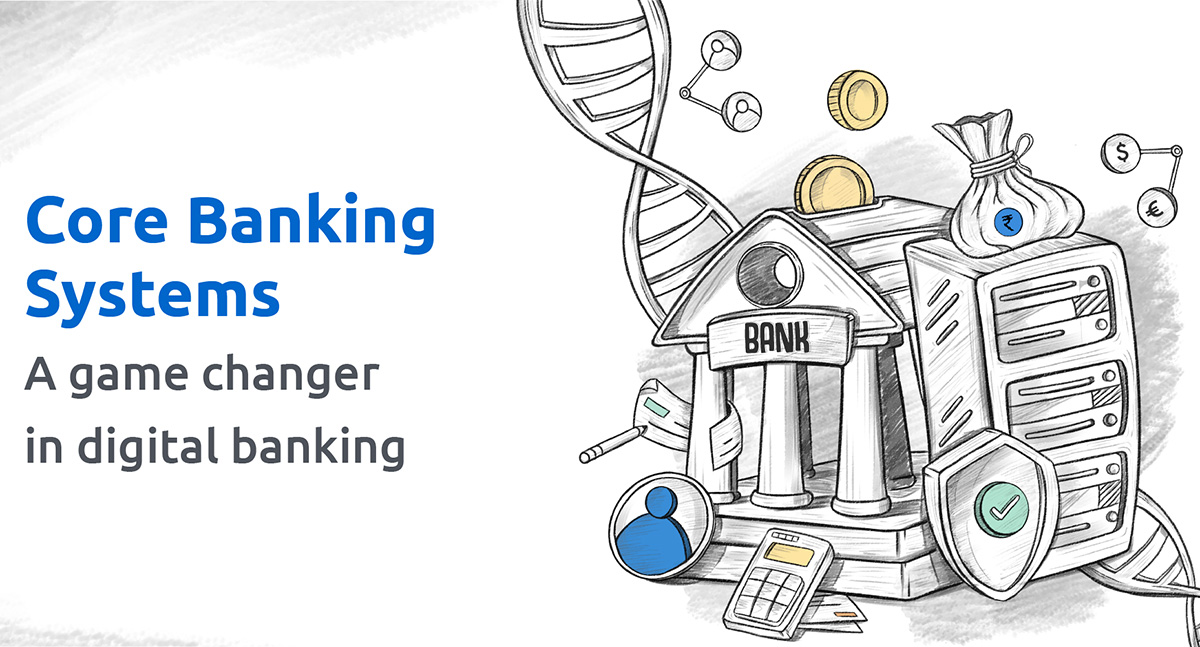

Finance
What Can You Do With An Accounting Degree
Published: October 13, 2023
Discover the endless possibilities of a finance career with an accounting degree. Unlock a world of opportunities in the financial industry and shape your future in finance.
(Many of the links in this article redirect to a specific reviewed product. Your purchase of these products through affiliate links helps to generate commission for LiveWell, at no extra cost. Learn more)
Table of Contents
- Introduction
- Career Paths in Accounting
- Public Accounting
- Private Accounting
- Government Accounting
- Nonprofit Accounting
- Financial Analysis
- Auditing
- Tax Planning and Preparation
- Consulting
- Entrepreneurship
- Forensic Accounting
- Accounting Systems Implementation
- Financial Management
- Budget Analysis
- Risk Management
- Conclusion
Introduction
An accounting degree opens up a multitude of career opportunities in the world of finance. Whether you have a passion for numbers, a keen eye for detail, or a desire to work with financial data, pursuing an accounting degree can pave the way for a successful and fulfilling career.
Accounting is the language of business. It involves the measurement, processing, and communication of financial information about economic entities. Accountants play a crucial role in organizations by ensuring the accuracy of financial records, analyzing data, and providing valuable insights for decision-making.
With advancements in technology and globalization, the demand for skilled accounting professionals continues to skyrocket. Companies across all industries require professionals who can provide financial expertise, ensure compliance with regulatory standards, and guide strategic financial planning.
So, what can you do with an accounting degree? The possibilities are immense. This article will explore a range of career paths available to individuals with an accounting background.
Career Paths in Accounting
There are numerous career paths you can pursue with an accounting degree. Whether your interests lie in public accounting, private accounting, government accounting, or even entrepreneurship, there is a role that suits your skills and ambitions. Let’s dive into some of the most popular career paths in accounting:
- Public Accounting: Public accounting firms provide various services including auditing, tax preparation, and consulting. As a public accountant, you can work with clients from different industries, conducting audits, preparing financial statements, and providing valuable advisory services. Notable public accounting firms include the Big Four: Deloitte, PwC, Ernst & Young, and KPMG.
- Private Accounting: Many companies have in-house accounting departments to manage their financial records. In private accounting, you can work as a staff accountant, financial analyst, or even as a controller or chief financial officer (CFO) in larger organizations. You’ll be responsible for ensuring financial integrity, preparing financial reports, and providing insights for management decision-making.
- Government Accounting: Government organizations at various levels, including federal, state, and local, have accounting departments to handle their financial operations. As a government accountant, you’ll be responsible for managing budgets, tracking expenditures, and ensuring compliance with financial regulations.
- Nonprofit Accounting: Nonprofit organizations require specialized accountants who are well-versed in handling the financial complexities unique to the nonprofit sector. In this role, you’ll manage grants and funding, oversee financial reporting, and navigate tax compliance for nonprofit organizations.
These are just a few of the many career paths available to accounting professionals. Other potential roles include financial analysis, auditing, tax planning and preparation, consulting, entrepreneurship, forensic accounting, accounting systems implementation, financial management, budget analysis, and risk management.
Each career path offers its own set of unique challenges, opportunities, and rewards. The key is to explore your interests, leverage your skills, and pursue the path that aligns with your goals and aspirations. With an accounting degree, the possibilities are vast, and your future in finance is bright.
Public Accounting
Public accounting is a popular career path for individuals with an accounting degree. Public accounting firms offer a diverse range of services to clients, including auditing, tax preparation, and consulting. This field provides opportunities to work with clients from various industries, gaining valuable insights into their financial operations.
As a public accountant, you will be responsible for conducting audits to ensure the accuracy and integrity of financial records. You’ll examine financial statements, analyze internal controls, and provide assurance to clients and stakeholders that their financial information is reliable. Auditing helps organizations maintain transparency and trust with their investors, lenders, and regulators.
In addition to auditing, public accountants also assist with tax planning and preparation. They help clients navigate complex tax laws, identify opportunities for tax savings, and ensure compliance with tax regulations. Public accountants are knowledgeable in tax codes and regulations, allowing them to provide strategic guidance to minimize tax liabilities while maximizing financial benefits for clients.
Public accounting firms also offer consulting services, where accountants work closely with clients to provide financial advice and strategic planning. This can involve financial analysis, budgeting, forecasting, and advising on business expansion or investment decisions. As a consultant, you’ll have the opportunity to work closely with clients, understand their financial goals, and provide tailored strategies to help them achieve success.
One of the appealing aspects of a career in public accounting is the opportunity for professional growth and advancement. Public accounting firms typically have well-defined career paths, with different levels of hierarchy, such as staff accountant, senior accountant, manager, and partner. As you gain experience and expertise, you can progress to higher positions with greater responsibilities and opportunities to lead teams and engage with high-profile clients.
Working in public accounting also offers exposure to a wide variety of industries and clients. This constant exposure allows you to develop a deep understanding of various sectors, which can be valuable if you decide to specialize in a particular industry later in your career.
In summary, a career in public accounting can be challenging, exciting, and rewarding. It offers the opportunity to work with diverse clients, gain valuable experience in auditing, tax, and consulting, and pave the way for long-term professional growth.
Private Accounting
Private accounting is a career path that involves working within an organization’s accounting department. Unlike public accounting, which provides services to external clients, private accounting focuses on managing and maintaining financial records for a specific company or entity.
As a private accountant, you will be responsible for the financial management and reporting of the organization. This includes tasks such as recording transactions, preparing financial statements, and analyzing the company’s financial performance.
One of the key roles in private accounting is that of a staff accountant. Staff accountants are responsible for daily financial operations, such as accounts payable, accounts receivable, payroll, and general ledger maintenance. They ensure the accuracy and integrity of financial data, making sure that all transactions are recorded correctly and in compliance with accounting standards.
In addition to staff accountants, private accounting departments often have positions such as financial analysts, controllers, and chief financial officers (CFOs). Financial analysts focus on analyzing financial data to provide insights and recommendations to management. They may be involved in budgeting, forecasting, and financial planning to support strategic decision-making.
Controllers play a crucial role in private accounting, as they oversee the overall financial management of the organization. They are responsible for financial reporting, internal controls, and ensuring compliance with regulatory requirements. Controllers work closely with management to provide accurate and timely financial information and play a key role in the organization’s financial strategy.
For those aspiring to hold top-level positions, such as CFO, private accounting can provide a pathway to leadership roles. CFOs are responsible for the financial strategy and success of the organization. They provide guidance and make decisions that impact the organization’s financial health and long-term growth.
One of the advantages of private accounting is the opportunity to work closely with a specific company or industry. This allows accountants to have a deep understanding of the organization’s operations, industry-specific accounting principles, and unique challenges. Private accounting can offer stability, as well as the chance to contribute to the growth and success of the organization over the long term.
In summary, private accounting provides a range of opportunities for accounting professionals to work within an organization’s finance department. It offers the chance to be involved in financial management, analysis, and decision-making, and it can lead to positions of leadership within an organization.
Government Accounting
Government accounting is a specialized field that involves working with financial records and operations within government entities at various levels, including federal, state, and local governments. Government accountants play a critical role in ensuring the proper management and transparency of public funds.
As a government accountant, your responsibilities will include budgeting, financial reporting, and compliance with governmental accounting standards. You will play a key role in tracking and managing public expenditures, ensuring that funds are allocated appropriately and in accordance with legal and regulatory requirements.
One of the primary tasks in government accounting is budget analysis. Government accountants work closely with budget managers to develop, monitor, and analyze budgets. They assess the financial impact of programs and services, provide recommendations for efficient resource allocation, and ensure adherence to budgetary constraints.
In addition to budget analysis, government accountants are responsible for financial reporting. They prepare financial statements, including balance sheets, income statements, and cash flow statements, which provide a comprehensive overview of the government’s financial position. These reports are essential for accountability and transparency, allowing citizens and stakeholders to understand how public funds are being used.
Compliance with governmental accounting standards is a crucial aspect of government accounting. Government accountants must adhere to specific accounting principles, such as the Governmental Accounting Standards Board (GASB) standards, which are designed to ensure consistency and transparency in financial reporting. They must also comply with legal and regulatory requirements, such as tax regulations and procurement rules.
Government accounting offers stability and the opportunity to contribute to public service. Working in the public sector allows accountants to serve the community, support government initiatives, and make a positive impact on society. Government accountants play a vital role in financial management and resource allocation, ensuring that taxpayer funds are used effectively and efficiently.
Furthermore, working in government accounting provides a unique perspective on the financial operations of the government, allowing accountants to gain insight into public policy, governance, and the overall functioning of the public sector. It offers exposure to a wide range of financial transactions and challenges, which can enhance an accountant’s knowledge and expertise.
In summary, government accounting offers opportunities for accounting professionals to work in the public sector and contribute to the financial management and transparency of government entities. It involves budget analysis, financial reporting, and compliance with governmental accounting standards, and provides the chance to make a difference in public service.
Nonprofit Accounting
Nonprofit accounting is a specialized field that involves working with financial records and operations within nonprofit organizations. Nonprofits have unique financial considerations and complexities, as they operate with a mission to serve the public interest rather than generate profits for shareholders.
As a nonprofit accountant, you will be responsible for managing the financial aspects of the organization, ensuring transparency, accountability, and compliance with regulations specific to the nonprofit sector.
One of the key responsibilities in nonprofit accounting is grant management. Many nonprofits rely on grants and funding from various sources to support their programs and initiatives. As a nonprofit accountant, you will be responsible for tracking grants, ensuring funds are used as intended, and reporting on the financial impact of grants to the relevant stakeholders.
In addition to grant management, nonprofit accountants are responsible for financial reporting and compliance. They prepare financial statements, including income statements, balance sheets, and cash flow statements, which provide a snapshot of the organization’s financial health. Nonprofit accountants also ensure compliance with nonprofit accounting standards, such as the Financial Accounting Standards Board (FASB) guidelines for nonprofit organizations.
Tax compliance is another important aspect of nonprofit accounting. Nonprofits enjoy certain tax benefits, such as exemption from income tax, but they must still comply with specific tax regulations. Nonprofit accountants navigate the complexities of nonprofit tax requirements, prepare tax returns, and ensure adherence to tax regulations to maintain the organization’s tax-exempt status.
Nonprofit accounting offers a unique opportunity for accountants to contribute to a cause and make a positive impact on society. Working in the nonprofit sector allows accountants to align their professional skills with their personal values. By ensuring the accurate and responsible management of funds, nonprofit accountants support the organization’s mission and help it achieve its goals.
Furthermore, nonprofit accounting provides exposure to a variety of challenges and opportunities for professional growth. Nonprofit organizations often operate with limited resources, requiring accountants to be creative and strategic in financial management. Nonprofit accountants may also be involved in fundraising efforts, budget planning, and providing financial guidance to the organization’s leadership team.
In summary, nonprofit accounting is a specialized field that involves financial management, reporting, and compliance within nonprofit organizations. It offers the opportunity to contribute to a cause, ensure responsible fund management, and support the organization’s mission. Nonprofit accounting provides exposure to unique challenges and opportunities for professional growth in the nonprofit sector.
Financial Analysis
Financial analysis is a critical function in both public and private sectors, and it plays a vital role in decision-making processes. Financial analysts are responsible for analyzing financial data, identifying trends, and providing insights to guide strategic business decisions.
As a financial analyst, you will work with a variety of financial statements, such as income statements, balance sheets, and cash flow statements. You will evaluate the company’s financial performance, assess its liquidity, solvency, and profitability, and identify areas of strength and weakness.
One of the primary objectives of financial analysis is to provide information and recommendations to management, investors, and stakeholders. Financial analysts prepare reports and presentations, conveying complex financial information in a clear and understandable manner. These reports help stakeholders make informed decisions regarding investments, acquisitions, and other significant financial activities.
Financial analysis also involves evaluating investment opportunities and assessing the feasibility of potential projects. Financial analysts use various analytical tools, such as net present value (NPV) and internal rate of return (IRR), to determine the potential return on investment and assess the risk associated with a particular project.
Furthermore, financial analysis plays a crucial role in the valuation of companies. Financial analysts assess the value of a company’s assets, liabilities, and future cash flows to determine its fair market value. This valuation is essential in mergers and acquisitions, initial public offerings (IPOs), and other transactions that involve the buying or selling of businesses.
To conduct financial analysis effectively, financial analysts utilize financial modeling and forecasting techniques. They build financial models that simulate different scenarios and help predict future financial performance. These models assist in strategic planning, budgeting, and decision-making processes.
In addition to numerical analysis, financial analysts must understand the broader economic factors that can impact business performance. They monitor market trends, industry developments, and regulatory changes to provide a comprehensive analysis of the external factors that may affect the company’s financial health.
Financial analysis is a dynamic and challenging field that requires strong analytical skills, attention to detail, and a deep understanding of financial concepts and principles. It offers opportunities to work in various industries and organizations, including banks, investment firms, corporations, and consulting firms.
In summary, financial analysis is a crucial function in both public and private sectors. Financial analysts play a vital role in evaluating financial performance, assessing investment opportunities, and providing strategic insights to support decision-making. Financial analysis combines data analysis, financial modeling, and economic analysis to provide a comprehensive understanding of an organization’s financial health and future prospects.
Auditing
Auditing is a fundamental aspect of accounting that involves examining financial records, transactions, and processes to ensure accuracy, integrity, and compliance with applicable regulations. Auditors play a crucial role in providing assurance to stakeholders that the financial information presented by an organization is accurate and reliable.
As an auditor, you will be responsible for conducting independent evaluations of an organization’s financial statements and internal controls. The primary objective of auditing is to assess whether the financial statements fairly represent the financial position and operating results of the organization.
Auditors follow a systematic approach to examine financial records and verify their accuracy. They analyze financial statements, review supporting documentation, and perform tests to determine the reliability and validity of the reported information. Auditors also assess the effectiveness of internal controls, identify any weaknesses or deficiencies, and provide recommendations for improvements.
Auditing can be both internal and external. Internal auditors work within an organization and assess the internal control systems, risk management processes, and operational efficiencies. Their objective is to provide independent and objective evaluations that help the organization achieve its objectives and improve its operations.
External auditors, on the other hand, are independent professionals typically employed by accounting firms. They are responsible for auditing the financial statements of an organization to provide assurance to external parties, such as investors, lenders, and regulatory authorities. External auditors follow generally accepted auditing standards (GAAS) and issue an audit opinion based on their findings.
Auditing goes beyond examining financial records. It also encompasses compliance auditing, where auditors verify that the organization is adhering to relevant laws, regulations, and industry standards. Compliance auditors assess an organization’s activities to identify any non-compliance issues and recommend corrective actions.
Auditing is essential for maintaining financial transparency and ensuring the integrity of financial reporting. It helps to build trust and confidence among stakeholders, such as shareholders, creditors, and the general public. Auditors provide an objective and independent assessment of an organization’s financial health, allowing stakeholders to make informed decisions based on reliable information.
Furthermore, auditing plays a critical role in detecting and preventing financial fraud and mismanagement. Through their scrutiny of financial records and controls, auditors can identify potential risks, irregularities, or discrepancies that require further investigation. Their findings can help organizations take corrective actions and strengthen their internal control systems.
In summary, auditing is a vital process that provides assurance on the accuracy of financial information and compliance with regulations. Auditors examine financial records, evaluate internal controls, and provide recommendations for improvement. Through their work, auditors contribute to financial transparency, fraud prevention, and confidence in financial reporting.
Tax Planning and Preparation
Tax planning and preparation is a critical function of accounting that involves managing an organization’s tax obligations, ensuring compliance with tax laws, and optimizing tax strategies to minimize tax liability. Tax accountants play a crucial role in assisting individuals and businesses in navigating the complex world of taxation.
As a tax accountant, your responsibilities will include preparing and filing tax returns, conducting tax planning, and staying up-to-date with ever-changing tax regulations. You will work closely with clients to analyze their financial records, identify potential deductions, and develop strategies to minimize their tax liability while remaining compliant with tax laws.
One of the primary tasks in tax planning and preparation is the preparation of tax returns. Tax accountants collect and analyze financial information, such as income, expenses, and deductions, to accurately complete tax forms and meet filing deadlines. They ensure that all applicable tax laws are followed and that clients are taking advantage of available tax credits and deductions.
In addition, tax accountants play a crucial role in tax planning. They assess clients’ current and projected financial situations to develop strategies that optimize their tax positions. Tax planning may involve identifying tax-saving opportunities, such as maximizing deductible expenses, utilizing tax credits, or structuring business transactions in a tax-efficient manner.
Tax accountants are knowledgeable about tax regulations and changes in tax laws. They stay up-to-date with the latest tax laws and regulations to ensure compliance and provide accurate advice to clients. Tax accountants are also responsible for monitoring legislative changes that may impact clients’ tax situations and advising them accordingly.
Working as a tax accountant requires strong analytical skills, attention to detail, and the ability to interpret complex tax laws and regulations. You must have a deep understanding of the tax code and be able to apply that knowledge to specific client situations. It is essential to communicate effectively with clients, explaining tax strategies and implications in a clear and understandable manner.
By providing tax planning and preparation services, tax accountants help individuals and businesses optimize their tax positions, reduce their tax liabilities, and ensure compliance with tax laws. This enables clients to allocate their financial resources more effectively, ultimately contributing to their financial success.
In summary, tax planning and preparation is a crucial aspect of accounting that involves managing an organization’s tax obligations and optimizing tax strategies. Tax accountants play a vital role in preparing tax returns, conducting tax planning, and ensuring compliance with tax laws. Through their expertise, tax accountants assist individuals and businesses in minimizing tax liability and strategically managing their tax positions.
Consulting
Accounting consulting is a dynamic field that offers opportunities for professionals to apply their financial expertise in a broader context. Accountants who work in consulting roles provide valuable advice and guidance to organizations on financial matters, strategic planning, and process improvement.
As an accounting consultant, you will work closely with clients to understand their unique financial challenges and goals. You will analyze their financial data, identify areas for improvement, and develop strategies to enhance financial performance and efficiency.
One of the key areas of consulting is financial analysis. As a consultant, you will analyze financial statements, assess profitability, liquidity, and financial stability, and provide insights to help clients make informed decisions. Financial analysis can involve evaluating investment opportunities, assessing the financial health of the organization, and identifying areas that require attention or improvement.
Consultants also assist organizations in optimizing their business processes and internal controls. By reviewing existing procedures, identifying inefficiencies, and recommending improvements, consultants help organizations enhance their operational effectiveness. This can include streamlining accounting processes, implementing new accounting systems, or strengthening internal control mechanisms.
Strategic planning is another aspect of accounting consulting. Consultants work with clients to develop financial strategies that align with their business objectives. This can involve creating budgets, forecasting financial performance, conducting market analysis, and developing long-term financial plans. By providing strategic financial guidance, consultants help organizations make informed decisions and achieve their financial goals.
Furthermore, accounting consultants often assist clients in navigating complex financial regulations and compliance requirements. They stay up-to-date with changes in accounting standards and regulatory guidelines to ensure clients’ adherence to legal and regulatory obligations. Consultants provide recommendations and guidance on accounting practices, ensuring that clients remain in compliance with financial reporting requirements.
Consulting offers a diverse range of opportunities for accounting professionals. It allows you to work with a variety of clients across industries, gaining exposure to different business models and challenges. Moreover, consulting provides a platform to develop essential skills such as critical thinking, problem-solving, and effective communication that are valuable in any accounting career path.
Working in accounting consulting requires strong analytical skills, a deep understanding of financial principles, and the ability to communicate complex concepts in a clear and concise manner. Additionally, consultants must have excellent interpersonal skills to build relationships with clients, understand their needs, and collaborate effectively to drive positive outcomes.
In summary, accounting consulting offers a rewarding and dynamic career path for accounting professionals. Consultants provide valuable advice and guidance to organizations on financial matters, process improvement, and strategic planning. Through their expertise, accounting consultants contribute to the financial success and growth of organizations across various industries.
Entrepreneurship
Entrepreneurship in the accounting field offers the opportunity for accounting professionals to start and run their own accounting firms or businesses. It allows individuals to leverage their accounting knowledge and skills to build their own client base, provide specialized services, and have control over their own career path.
As an accounting entrepreneur, you have the flexibility to define your own services and target market. You can choose to focus on a specific industry, such as healthcare, technology, or real estate, and provide tailored accounting and financial services to clients within that sector. This specialization can help you differentiate yourself in the market and attract clients seeking expertise in their specific industry.
Starting your own accounting firm also gives you the freedom to set your own working hours and define your company culture. You have the autonomy to create a business model that aligns with your values and goals, allowing you to foster a positive work environment and provide exceptional client service.
Entrepreneurship in accounting goes beyond providing traditional accounting services. It presents opportunities to offer value-added services such as financial consulting, tax planning, and business advisory. By leveraging your expertise and industry knowledge, you can become a trusted advisor to your clients, helping them navigate complex financial decisions and achieve their business goals.
When starting an accounting business, it is important to cultivate a strong network and build relationships with potential clients and referral sources. Networking events, industry conferences, and professional organizations can facilitate connections and help you establish your reputation as a reliable and knowledgeable accounting professional.
In addition to client management, entrepreneurship requires the ability to handle the administrative and operational aspects of running a business. This includes managing finances, hiring and training staff, implementing effective systems and processes, and staying up-to-date with industry trends and regulations.
While entrepreneurship offers numerous opportunities, it also comes with challenges. Building and growing a business requires dedication, perseverance, and continuous learning. As an entrepreneur, you may face competition, financial constraints, and the need to continually adapt to a changing business landscape. However, for those who are willing to take risks and are passionate about accounting and business ownership, entrepreneurship can be a rewarding and fulfilling career path.
Ultimately, entrepreneurship in accounting allows individuals to create their own path, build a successful business, and have a direct impact on clients and the community. It offers the freedom to pursue your passion, control your professional trajectory, and shape the future of your accounting career.
Forensic Accounting
Forensic accounting is a specialized field within accounting that combines accounting, auditing, and investigative skills to uncover financial fraud, analyze financial data for legal purposes, and provide expert testimony in legal disputes. Forensic accountants play a crucial role in identifying and preventing financial misconduct, providing litigation support, and ensuring the integrity of financial information.
As a forensic accountant, you will use your accounting expertise to investigate financial discrepancies, irregularities, and potential fraud within an organization. You will meticulously examine financial records, transactions, and documents to uncover evidence of fraudulent activities, such as embezzlement, money laundering, or financial statement manipulation.
Forensic accountants work closely with legal professionals, law enforcement agencies, or regulatory bodies to provide support in financial investigations. They collaborate with these entities to gather evidence, analyze financial data, and present their findings in a clear and concise manner.
In addition to fraud investigations, forensic accountants assist in dispute resolution and litigation cases. They may be called upon to quantify financial damages, analyze financial statements, calculate lost profits, or provide expert opinions in legal disputes, such as contract breaches, business valuation disputes, or matrimonial cases.
Forensic accountants also play a role in implementing and improving internal controls and anti-fraud measures within organizations. By conducting risk assessments, evaluating control systems, and developing fraud prevention strategies, they help organizations detect and deter fraudulent activities before they occur.
Skills required for forensic accounting include attention to detail, analytical thinking, and a strong understanding of financial and accounting principles. Forensic accountants must have the ability to interpret complex financial data, follow a paper trail, and identify unusual patterns or discrepancies.
Beyond technical skills, forensic accountants must have excellent communication and presentation skills. They are often required to convey complex financial information in a clear and compelling manner to a variety of audiences, including lawyers, law enforcement officials, and judges.
Forensic accounting offers a challenging and intellectually stimulating career path. It requires constant learning and staying abreast of the latest fraud detection techniques, technologies, and industry best practices.
In summary, forensic accounting is a specialized field that combines accounting, auditing, and investigative skills to uncover financial fraud, analyze financial data for legal purposes, and provide expert testimony in legal disputes. Forensic accountants play a critical role in investigating financial misconduct, providing litigation support, and ensuring the integrity of financial information.
Accounting Systems Implementation
Accounting systems implementation involves the process of transitioning from manual or outdated accounting processes to modern, computerized accounting systems. This field of accounting focuses on integrating technology to improve efficiency, accuracy, and effectiveness in financial recording, reporting, and analysis.
As an accounting systems implementation specialist, you will work with organizations to assess their current accounting practices and identify opportunities for improvement through the adoption of accounting software and systems. This may involve selecting, customizing, and implementing new accounting software or upgrading existing systems to better meet the organization’s needs.
The implementation process typically involves several phases, including requirements gathering, system design, data migration, system configuration, testing, and training. Accounting systems implementation specialists collaborate with various stakeholders, including accounting staff, IT professionals, and management, to ensure a smooth transition and successful adoption of the new system.
Implementing accounting systems offers numerous benefits to organizations. It streamlines processes, reduces manual effort, and minimizes the risk of errors or data inconsistencies. Modern accounting systems can automate tasks such as data entry, report generation, and reconciliation, allowing accounting professionals to focus on higher-value analysis and decision-making tasks.
Accounting systems also provide real-time visibility into financial data, enabling timely and accurate reporting. With integrated reporting capabilities, organizations can generate financial statements, management reports, and customized analyses to support strategic decision-making.
Moreover, accounting systems implementation enhances data security and compliance. Modern systems have built-in controls to protect sensitive financial information, integrate with other business systems to ensure data integrity, and support compliance with accounting standards and regulatory requirements.
To succeed in accounting systems implementation, specialists must have a solid understanding of accounting principles and processes, as well as strong technical and analytical skills. They need to be familiar with various accounting software packages, database management, and data migration techniques. Effective communication skills are essential to collaborate with stakeholders and facilitate the adoption of the new accounting systems within the organization.
In summary, accounting systems implementation involves transitioning from manual or outdated accounting practices to computerized systems. This field focuses on integrating technology to improve efficiency, accuracy, and reporting capabilities. Accounting systems implementation offers benefits such as streamlined processes, real-time visibility, enhanced data security, and compliance. Accounting systems implementation specialists play a crucial role in assessing needs, selecting and implementing software, and facilitating successful adoption within organizations.
Financial Management
Financial management is a critical aspect of accounting that involves the planning, controlling, and monitoring of an organization’s financial resources to achieve its goals and ensure long-term financial sustainability. Financial managers play a crucial role in making strategic financial decisions, managing budgets, and optimizing the organization’s financial performance.
As a financial manager, you will be responsible for analyzing financial data, preparing financial reports, and providing insights and recommendations to support managerial decision-making. You will collaborate with various departments within the organization to develop and manage budgets, monitor financial performance, and ensure effective utilization of resources.
One of the primary tasks in financial management is budgeting. Financial managers work closely with managers and executives to develop budgets that align with the organization’s strategic objectives. They analyze financial data, forecast future expenses and revenues, and allocate resources to different departments or projects. By monitoring actual performance against the budget, financial managers can identify areas for improvement and take corrective actions as needed.
Financial managers also play a key role in financial planning and forecasting. They analyze historical financial data, market trends, and industry benchmarks to develop long-term financial plans. Financial planning involves setting financial goals, identifying strategies to achieve those goals, and determining the resources required to implement those strategies. Forecasting, on the other hand, involves predicting future financial performance based on historical data and economic trends.
In addition to budgeting and planning, financial managers are responsible for managing cash flow and liquidity. They ensure that the organization has sufficient funds to meet its obligations, such as payroll, debt repayments, and operating expenses. Financial managers manage the organization’s working capital, make decisions regarding investments, and manage relationships with financial institutions.
Financial managers also assess and manage financial risks. They identify potential sources of risk, such as market volatility, interest rate fluctuations, or credit risks, and develop strategies to mitigate those risks. This can involve implementing risk management frameworks, diversifying investments, or hedging against currency or interest rate risks.
Furthermore, financial managers are responsible for financial reporting and compliance. They ensure that the organization’s financial statements are accurate and comply with accounting standards and regulatory requirements. They prepare financial reports, coordinate audits, and provide financial information to stakeholders, such as investors, creditors, and regulatory bodies.
Successful financial management requires strong analytical skills, financial acumen, and a deep understanding of accounting principles and financial markets. Financial managers must also have excellent communication and interpersonal skills to collaborate with stakeholders across different departments and levels of the organization.
In summary, financial management is a crucial function of accounting that involves planning, controlling, and monitoring an organization’s financial resources. Financial managers play a vital role in budgeting, financial planning, cash flow management, risk management, and financial reporting. Through strategic financial decision-making, financial managers help organizations achieve their goals and ensure long-term financial stability.
Budget Analysis
Budget analysis is a key component of financial management that involves evaluating and interpreting an organization’s budget to ensure effective allocation of resources and informed decision-making. It plays a crucial role in monitoring financial performance, identifying areas of improvement, and supporting strategic planning.
As a budget analyst, you will be responsible for examining and analyzing an organization’s budgetary processes, reviewing financial data, and providing insights and recommendations to optimize budget utilization. Your goal is to ensure that the organization’s financial resources are allocated efficiently and aligned with its strategic objectives.
One of the primary tasks in budget analysis is assessing the organization’s revenue and expenditure patterns. This involves reviewing historical financial data, identifying trends, and forecasting future income and expenses. By analyzing revenue sources and expenditure patterns, budget analysts help determine realistic and achievable budget targets.
During the budget analysis process, budget analysts work closely with department heads and managers to understand their needs, priorities, and resource requirements. They evaluate budget proposals, assess the feasibility of funding requests, and provide insights on cost-effectiveness and return on investment.
Budget analysis also includes monitoring and tracking actual financial performance against the budget. Budget analysts compare actual expenditures and revenues to the budgeted amounts, identify variances, and investigate the reasons behind the discrepancies. Through variance analysis, budget analysts help identify areas where performance is falling short or exceeding expectations, enabling management to make informed decisions and take corrective action.
In addition to analyzing the financial aspects of the budget, budget analysts assess the impact of proposed or potential changes in the organization’s operations, policies, or external factors. They perform “what-if” scenarios, conduct financial modeling, and provide insights on the financial consequences of different courses of action. This helps management evaluate options and make decisions that align with the organization’s financial goals.
Budget analysis is not solely focused on financial matters. Budget analysts also consider non-financial factors, such as organizational objectives, strategic plans, and performance metrics, to ensure that the budget is aligned with the organization’s overall goals and priorities.
Effective budget analysis requires strong analytical skills, attention to detail, and the ability to interpret and explain complex financial data. Budget analysts must have a solid understanding of financial management principles, finance and accounting concepts, and budgeting techniques. They also need excellent communication and interpersonal skills to collaborate with different stakeholders and present budget analysis findings in a clear and concise manner.
In summary, budget analysis is a critical function in financial management that involves evaluating and interpreting an organization’s budget to ensure effective resource allocation and decision-making. Budget analysts assess revenue and expenditure patterns, monitor performance against the budget, and provide insights and recommendations to optimize budget utilization. Through their work, budget analysts contribute to the financial health and strategic planning of organizations.
Risk Management
Risk management is an essential aspect of financial management that involves identifying, assessing, and mitigating potential risks that may impact an organization’s financial stability and strategic objectives. It is a proactive approach that helps organizations anticipate and address risks to minimize their negative impact and maximize opportunities.
As a risk manager, you will be responsible for identifying and analyzing risks that could affect the organization’s financial well-being. This includes assessing both internal and external risks, such as market volatility, regulatory changes, operational inefficiencies, cybersecurity threats, and natural disasters.
One of the key tasks in risk management is risk identification. Risk managers work closely with various departments and stakeholders to identify potential risks and vulnerabilities. They conduct risk assessments, engage in scenario planning, and analyze historical data to identify patterns or trends that may indicate potential risks.
Once risks are identified, the next step is risk assessment. Risk managers evaluate the likelihood of risks occurring and assess their potential impact on the organization. This analysis allows them to prioritize risks, focusing efforts on those with the highest probability and potential impact. Risk assessment helps organizations allocate resources effectively and develop appropriate risk mitigation strategies.
Risk mitigation is a critical component of risk management. Risk managers collaborate with relevant stakeholders to develop and implement strategies to reduce the likelihood of risks or minimize their impact. This may involve implementing internal controls, enhancing security measures, diversifying investments, or developing contingency plans.
Monitoring and reporting on risk management activities is an ongoing process. Risk managers continuously monitor risk levels, evaluate the effectiveness of risk mitigation strategies, and update risk profiles as new risks emerge or existing risks evolve. They also provide regular reports to senior management and board members to keep them informed about the organization’s risk exposure and the effectiveness of risk management efforts.
Effective risk management requires a multidisciplinary approach. Risk managers must possess excellent analytical skills, the ability to think critically, and a strong understanding of financial markets, regulatory requirements, and industry trends. They need to stay abreast of emerging risks and adopt a forward-looking mindset to mitigate potential threats.
Moreover, risk managers must communicate effectively and collaborate with various stakeholders across the organization. Building relationships with key decision-makers, department heads, and risk management teams is crucial for successful risk management implementation. Risk managers educate and raise awareness about risks, facilitate risk assessments, and foster a risk-aware culture throughout the organization.
In summary, risk management is a vital aspect of financial management that involves identifying, assessing, and mitigating potential risks that may affect an organization’s financial stability and objectives. Risk managers play a crucial role in identifying and analyzing risks, developing risk mitigation strategies, and monitoring risk levels. Through their efforts, risk managers help organizations navigate uncertainties, protect their financial well-being, and seize opportunities while managing potential threats.
Conclusion
In conclusion, pursuing a career in accounting opens a world of opportunities in various fields and industries. With an accounting degree, you can explore diverse career paths such as public accounting, private accounting, government accounting, nonprofit accounting, financial analysis, auditing, tax planning and preparation, consulting, entrepreneurship, forensic accounting, accounting systems implementation, financial management, budget analysis, and risk management.
Public accounting offers the chance to work with clients from different industries, providing auditing, tax, and consulting services. Private accounting allows you to work within a company’s accounting department, managing financial records and providing strategic financial insights. Government accounting focuses on financial operations and compliance within the public sector, while nonprofit accounting involves financial management for nonprofit organizations with unique financial complexities.
Financial analysis involves analyzing financial data, providing insights for decision-making, and supporting strategic planning. Auditing plays a critical role in ensuring the accuracy of financial information and identifying fraud or mismanagement. Tax planning and preparation involve assisting individuals and businesses in navigating complex tax regulations, optimizing tax strategies, and ensuring compliance with tax laws.
Consulting offers the opportunity to provide financial advice and guidance to organizations on a wide range of financial matters. Entrepreneurship allows accounting professionals to start their own accounting firms or businesses, leveraging their expertise and offering specialized services. Forensic accounting involves investigating financial fraud, analyzing financial data for legal purposes, and providing expert testimony.
Accounting systems implementation focuses on transitioning from manual or outdated accounting processes to computerized systems, enhancing efficiency and accuracy. Financial management involves planning, controlling, and monitoring financial resources to achieve organizational goals. Budget analysis assesses the organization’s budget, monitors financial performance, and supports decision-making. Risk management identifies, assesses, and mitigates potential risks to protect the organization’s financial well-being.
In conclusion, the diverse career paths available in accounting, coupled with the increasing demand for accounting professionals, make it an exciting and rewarding field to pursue. With the right skills, knowledge, and passion, a career in accounting can lead to long-term success, professional growth, and the opportunity to make a meaningful impact on organizations and their financial health.














